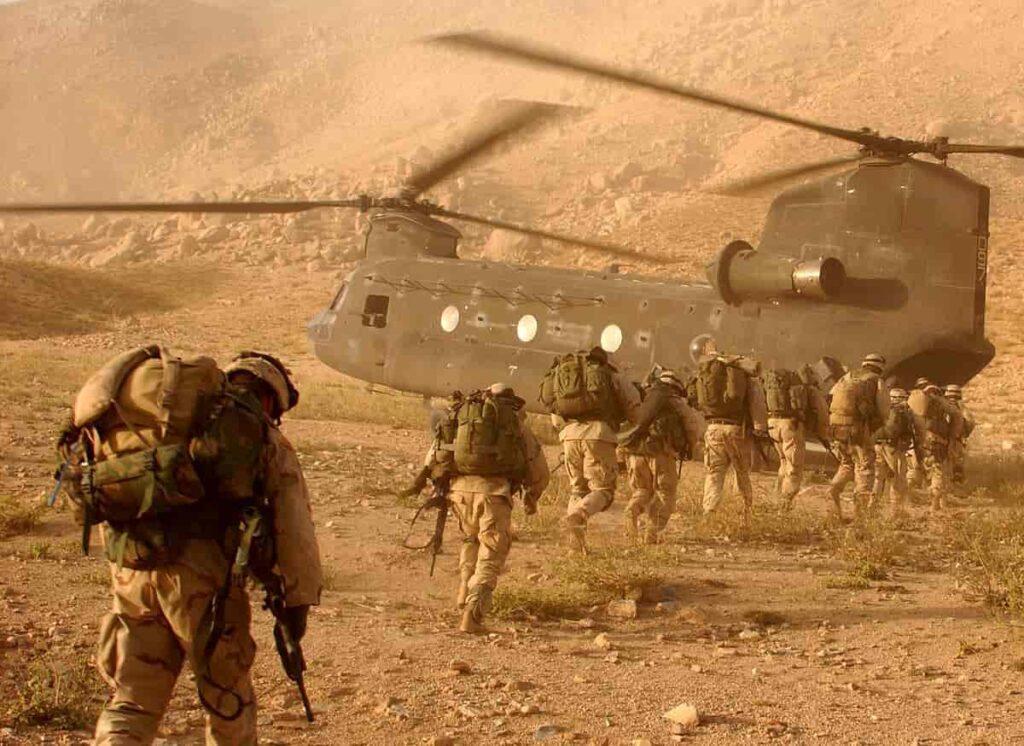The withdrawal of NATO troops from Afghanistan after two decades of military presence has caused a mix of reactions from world leaders and military figures, with some expressing dismay, consternation, and anger [1]. The decision to withdraw was announced in March 2021, following a meeting between NATO’s foreign and defense ministers and the United States Secretary of State and Secretary of Defense [2]. This marks the end of the longest war in U.S. history, which began in the aftermath of the 9/11 attacks in 2001.
The Taliban, which had been ousted by the U.S.-led coalition in 2001, swiftly regained control of the country after the withdrawal, leading to concerns about the future of Afghanistan and the impact of the Western world’s failed military intervention. Osama bin Laden, the mastermind behind the 9/11 attacks, had been running al-Qaida from Afghanistan since the Taliban seized power in 1996 [3].
NATO officials agreed to begin the withdrawal after the U.S. announced its plan to remove all troops from Afghanistan by September 11, 2021. However, the process was not without difficulties, and there were concerns about the security situation in the country [4]. In April 2021, U.S. President Joe Biden announced that all troops would be removed from Afghanistan by September 11, citing the need to end the “forever war” [5]. The move triggered a hasty military scramble for the exit by all residual NATO forces [6].
The NATO withdrawal has been widely criticized as a failure of the Western world and a catastrophe for the Afghan people. Many have called for the international community to take responsibility for the consequences of the war, including the displacement of millions of Afghans and the resurgence of the Taliban [7]. NATO officials have declined to provide details about the troop withdrawal, but stated that they plan to complete the process within a few months [8].
NATO’s Withdrawal from Afghanistan: The Aftermath
As NATO’s withdrawal from Afghanistan is complete, the situation in the region remains precarious. After two decades of military involvement in Afghanistan, NATO’s mission to stabilize the country seems to have ended in failure. The aftermath of the withdrawal is a topic of great concern, and many experts and analysts are worried about the long-term implications of the decision. In this article, we will explore the reasons for NATO’s withdrawal from Afghanistan, the aftermath of the decision, and the potential consequences for the region.
The Aftermath: What is Happening in Afghanistan?
Following the withdrawal of NATO forces from Afghanistan, the security situation in the country has deteriorated significantly. The Taliban, the Islamist extremist group that was ousted from power in 2001, has regained control of the country [[6]]. The group took advantage of the withdrawal to launch a major offensive that resulted in the capture of most of the country, including the capital city, Kabul. The Afghan government, which was heavily dependent on NATO forces for security and other support, collapsed quickly in the face of the Taliban onslaught. The sudden and chaotic evacuation of Western nationals and Afghan refugees from Kabul airport further compounded the crisis [[6]].
The Consequences: What is the Impact of NATO’s Withdrawal on the Region?
The withdrawal of NATO forces from Afghanistan has significant implications for the region and the world. The return of the Taliban to power has raised concerns about human rights, especially for women and minorities, and the potential for the group to provide a safe haven for terrorists [[6]]. The collapse of the Afghan government has also created a power vacuum that could lead to further instability and violence in the region. The withdrawal has also raised questions about the credibility of the NATO alliance and its ability to fulfill its commitments to its member states and allies. The decision to withdraw has been criticized by some experts and analysts who argue that it has created a security vacuum that could be exploited by extremist groups and state actors such as Russia and China [[6]].
Conclusion
NATO’s withdrawal from Afghanistan has been a significant event that will have long-lasting consequences for the region and the world. While the decision to leave was motivated by political and financial factors, the aftermath of the withdrawal has been marked by chaos and uncertainty. The return of the Taliban to power and the collapse of the Afghan government have raised concerns about human rights, security, and stability in the region. As the world looks on with perplexity and concern, it is clear that the decision to leave Afghanistan will have far-reaching consequences for the future.


